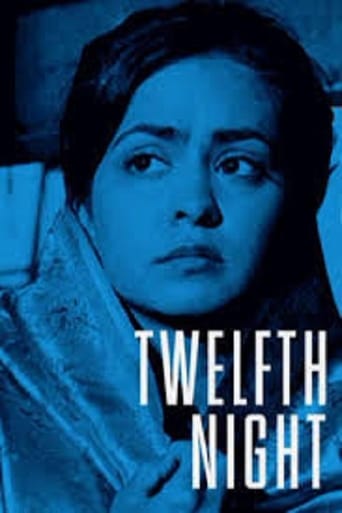davidurieli
As a rather hard line traditionalist I tend to hate modern adaptations of Shakespeare but in this lovely 2003 TV adaptation of the 12th Night I forgot the modern jetsam and got lost in the play. The explanation of the modern context I found irrelevant but once Parminder Nagra came on the scene I was entranced. Once again Shakespeare shows his absolute timelessness, where, whatever the dress, furniture, architecture and scenery his brilliant lines taken up with sensitivity and skill still have the power to move you to tears again and again. Even though the 1996 adaptation with Imogen Stubbs was quite brilliantly acted it pales before gentle sincerity of emotion shown by Nagra. Probably not a performance for the uninitiated but for a Shakespeareophile pure bliss.
terry nienhuis
I find this an almost impeccable film version of this very subtle Shakespearean comedy, far transcending my former favorite, the 1996 film version by Trevor Nunn, which now pales in comparison. Shakespeare's TWELFTH NIGHT was probably written shortly after HAMLET, around 1601 or 1602, and thus embodies all the complexity of thought and feeling that dominated Shakespeare's greatest period of dramatic productivity. This is not COMEDY OF ERRORS or even MIDSUMMER NIGHT'S DREAM. This is a hilarious comedy tinged with darkness, with Shakespeare probably finally processing the death of his only son, Hamnet, in 1596. This film version of the play captures all that complexity. It is outrageously funny in its dark way, deeply thoughtful, and very powerful in its emotional resonance. This film elucidates characters, character relationships, and situations as no other production I have ever seen. Even the usually, nearly invisible Fabian becomes an important figure in the play. I am especially thrilled by the fresh line readings, many of which have opened new doors for me after nearly 40 years and dozens of experiences with this text. However, many people will be put off by this version's style, which is liberated and far from what people expect from Shakespeare. If one can open one's mind and heart to what is actually here and accept the film's style as a legitimate artistic choice, the appropriateness and power of the camera work and soundtrack become part of this film's strongest features. It is a version that can move those inexperienced with Shakespeare and those who know the text intimately.
anniepearson50
First, the acting in this production is excellent, with each actor finding new aspects of the characters in ways you wouldn't have thought of before. Second, the staging is novel and invigorating without being coy and silly in the way some modernized stagings of Shakespeare can be. The multi-ethnic casting adds another dimension of tension and sensuality to the story. If you are familiar with this play, what is intriguing is how this production renders all the lines faithfully, but the text becomes a melancholic, philosophical reflection on life and love--very sweet and moving without being cute. However, if you are watching this instead of reading Cliff Notes, yes, you'll probably have trouble writing your term paper. You will have to pay attention as much as you'd have to pay to actually reading the play. The only real criticism I'd make is that some attempts to be arty with the camera (and editing) don't always succeed.
talltale-1
I am not sure just what it is about TWELFTH NIGHT that makes it so difficult to mess up. Whether as movie or play, it's as close to a sure thing as Shakespeare ever wrote. I can't recall any production I have seen that didn't offer at least something worthwhile, and this new version--filmed probably for British or Scot television in 2003--boasts much more than that. Heavier on melancholy than most, it showcases a wonderful cast that's new to me (except for Parminder Nagra from "Bend It Like Beckham," Chiwetel Ejiofor from "Dirty Pretty Things" and Michael Maloney-- who makes a superb Malvolio).Director Tim Supple (who also co-adapted) has set this in modern dress, and here the modern angle works terrifically well. Having the roles of Viola and Sebastian played by East Indians is also a smart move, adding a layer of Britain's colonial history to the mix. As well as I already know the play, I was often surprised at how Supple's visual choices uncovered new meaning to the script. And, as ever, the revealing of identities and mutual bonding at play's end moves us all over again. I think this sad and lovely version might be a good place for beginners to start--and confirmed 12th Night-lovers to continue their study.


